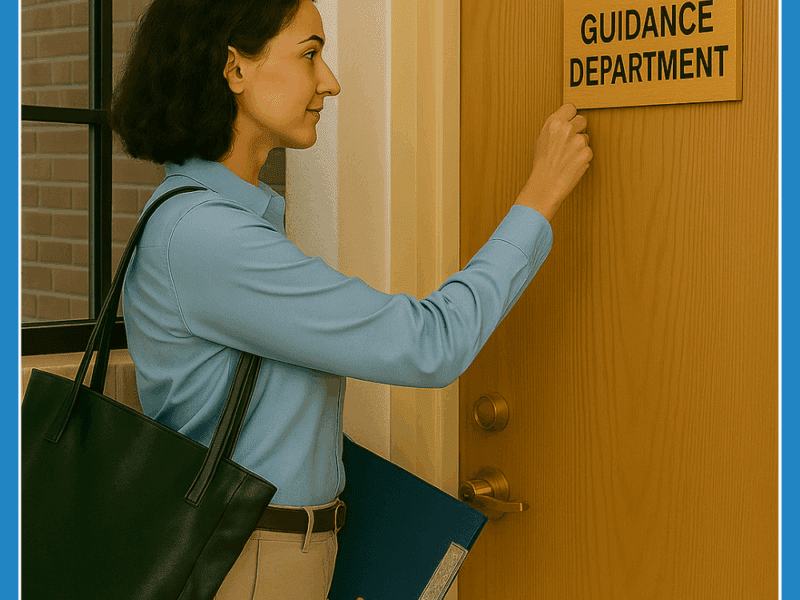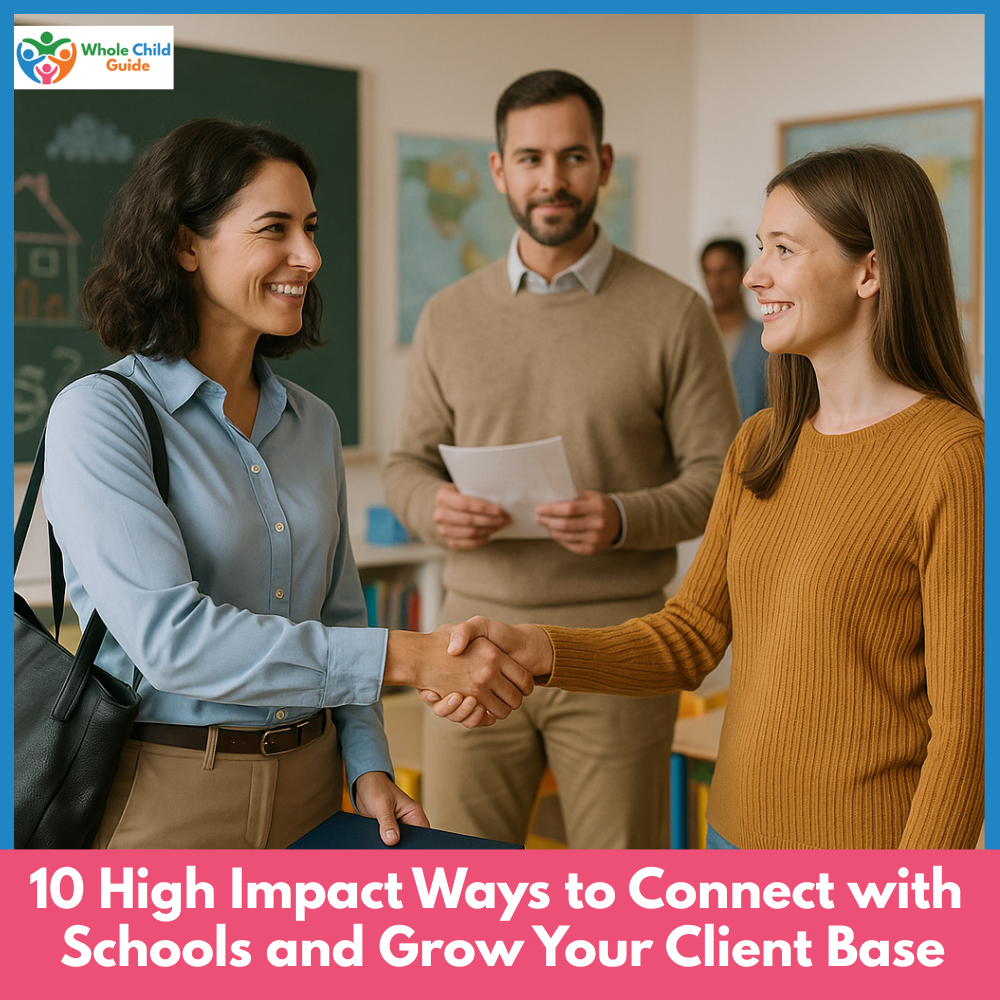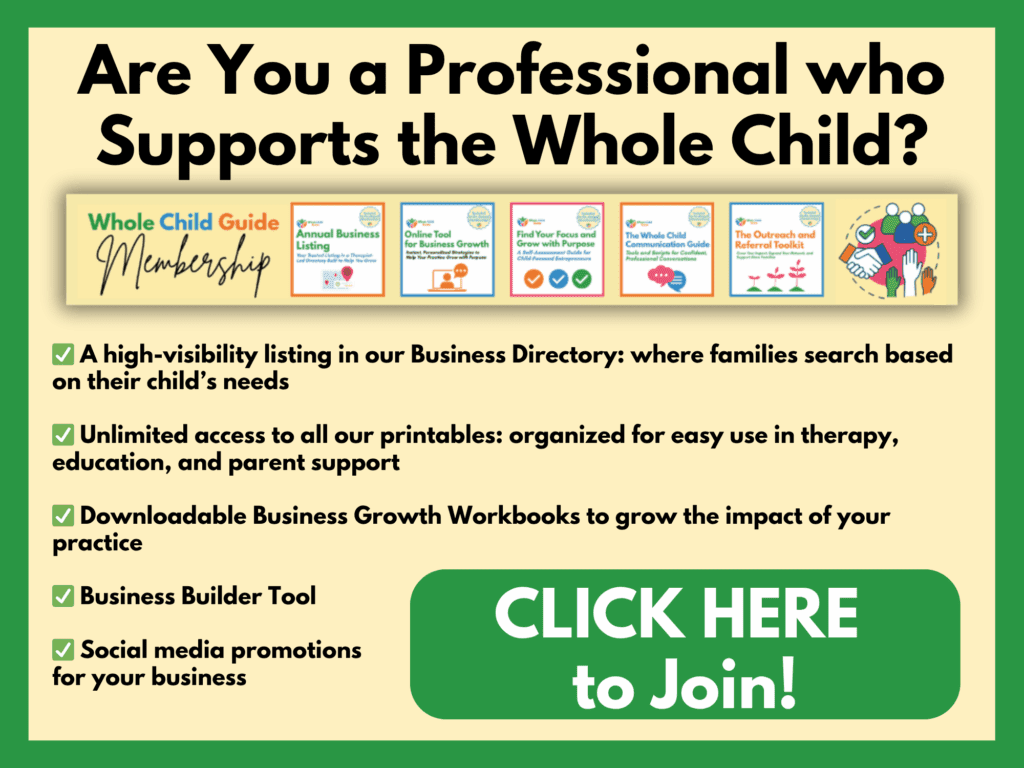
If you’re a professional supporting children’s development, you know that schools are natural referral partners. Teachers, counselors, and administrators work with the same families you serve but they might not know you exist. The good news? You don’t need a complicated marketing strategy to build meaningful school connections. You just need to show up as a helpful resource with clear, actionable support. Here are 10 high-impact ways to connect with schools to grow your client base.
1. Offer a Free 20-Minute In-Service During Planning Time
Contact the special education coordinator or school counselor and offer a brief session on a topic teachers actually need help with—like sensory strategies for the classroom, movement breaks that improve focus, or recognizing when a child might need additional support. Keep it practical, not promotional.
Script to use: “I’d love to offer a short, free session on [topic] for your team. It’s about 20 minutes, includes a takeaway handout, and offers simple strategies that can be used right away.”
2. Create a Monthly Tip Sheet for Common Classroom Challenges
Send a one-page resource to local schools with 3-5 quick strategies for issues like attention, behavior, or fine motor skills. Make it classroom-ready with simple language teachers can use immediately.
Pro tip: Include your contact info subtly at the bottom, positioned as “Questions? Contact [Your Name]” rather than a sales pitch.
3. Volunteer to Attend a Student Support Team Meeting
Reach out to offer your expertise for challenging cases. Even if you can’t provide direct services, your professional perspective can help teams understand what to look for and when to refer out.
What to say: “I’m a local [your profession] and would be happy to offer input on challenging cases if it would be helpful to your team.”
4. Drop Off Resources to the Right People
Skip the main office. Go directly to the school psychologist, counselor, or special education teacher with a simple flyer about your services. These are the people who actually make referrals.
What to bring: A one-page summary of who you help, what you offer, and how to reach you. Keep it professional but warm.

5. Connect with Schools – Become a Guest Speaker at a School Parent Night
Schools regularly host parent education events but often struggle to find speakers. Offer to present on a topic that serves both the school’s mission and parents’ needs—like supporting homework routines, building independence, or understanding development.
6. Collaborate with a Special Education Teacher
Partner with a special ed teacher to co-host a workshop for parents or staff. This builds credibility through association and shows you work well with school professionals.
Topics that work well: Transition planning, sensory-friendly strategies, or executive function support.
7. Provide Developmentally Appropriate Milestone Lists
Create printable milestone checklists that teachers can use to understand typical development and know when to be concerned. This positions you as the expert they can call when questions arise.
Make it useful: Include age ranges, red flags to watch for, and a clear note about when to seek additional support.
8. Sponsor or Donate a Resource for the Family Resource Center
Many schools have family resource areas where they share community information. Donate something useful, like a sensory toolkit, developmental activity guide, or resource list, with your contact information included.
9. Host a “Coffee and Questions” Hour for School Staff
Invite school professionals to an informal gathering where they can ask questions about child development, discuss challenging cases, or learn about your services in a relaxed setting.
Keep it low-key: Focus on being helpful rather than promotional. Bring coffee and simple snacks.
10. Send a Seasonal “I’m Available” Update
Every few months, send a brief email to your school contacts letting them know you’re accepting new clients or available for consultation. Include any new services or specialties you’re offering.
Sample message: “As we head into [season], I wanted to share a quick update—I’m currently available for new clients and school support in [your focus area]. If your team has any families who could use support, I’d be happy to connect.”
Ready to Take Action and Connect with Schools?
Start with just one strategy from this list. Pick the one that feels most natural to your communication style and the schools in your area. Remember: school connections aren’t built overnight. They grow through consistent, helpful engagement that shows you care about the same outcomes they do, helping children succeed. Don’t forget to reach out to other community members as well.
Need to reach out to pediatricians too? Check out this free email template pediatrician referral.
Want more strategies like these? This list represents just 10 of the 50+ actionable ideas we’ve developed for building professional relationships and growing your referral network. Our complete Outreach and Referral Toolkit includes ready-to-use email templates, follow-up checklists, presentation guides, and proven strategies for connecting with schools, pediatricians, and fellow providers. It is included in the Whole Child Guide membership along with many other benefits. Join today!
The Whole Child Guide supports professionals who work with children and families through practical resources, professional development, and community connection.

